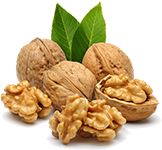
- Famous Brand Promotion:
 010-63457516
010-63457516 -

 Favorites
Favorites

 010-63457516
010-63457516
 Favorites
Favorites
The peanut is the most common food in everyday life. We all know that the peanut is also known as “the longevity nut”, which shows its health care effect. The how can we eat peanuts for the best health?
Revealing the health care efficacy of peanuts:
1. Lowering cholesterol levels: The peanut is sweet and natured, having an effect of strengthening the spleen and harmonizing the stomach, moistening the lungs and reducing sputum, benefiting Qi and arresting bleeding, and it may be used to treat the emaciation due to spleen deficiency, weakness due to deficiency of food, dry cough with little phlegm and postnatal hypogalactia.Fat in peanuts helps the intrahepatic cholesterol to decompose into bile acid, promote excretion, reducing the cholesterol content in the blood and preventing atherosclerosis.
2. The peanut can warm stomach: The peanut can treat the stomachache occurred frequently after the first frost. If you choose some stomach-warming food consciously such as peanut, pumpkin, sweet potato, carrot and cabbage, the goal of nourishing and warming the stomach may be achieved.
3. Slowing the aging process: The protein and amino acid rich in peanuts can improve memory and slow the aging process. VE contained in peanuts can slow the tissue aging process and enhance the hepatic detoxification function.
4. Having a powerful hematopoietic function: The peanut has an effect of arresting bleeding and promoting the platelet, and the peanut red skin has an effect 50 times more powerful than the peanut kernel, so it’s better to eat peanut together with the red skin.
The nutritionist said that the peanut has a powerful health maintenance effect. We can eat some peanuts occasionally but not too much because it will increase the cholesterol level.
The peanut is rich in nutrients and it is a low-cost and easy-to-gain health care product. According to the scientific research, the peanut has abundant plant sterols which is very beneficial to human health. Especially the β-sitosterol has an effect of preventing colon cancers, prostatic cancers, breast cancers and cardiovascular diseases. Further studies by American scientists discovered that the peanut also contains the “resveratrol”. This substance has a very strong biological activity, not only fighting cancers, but also preventing platelet aggregation, preventing myocardial infarction and cerebral infarction. There are 8.48 milligrams of zinc in every 100 grams of peanuts, which can enhance immune function and slow the aging process. Therefore, the peanut is known as the “longevity nut”.
However, the peanut is a crop most susceptible to the aspergillus flavus. According to the research by profession Li Peiwu, the doctoral supervisor in Oil Crops Research Institute, Chinese Academy of Agricultural Sciences, the peanut may suffer an infection of aspergillus flavus during the overall growth process including the period of growing under the ground. The peanut is more susceptible to aspergillus flavus after being harvested due to the effect of air temperature, humidity and storage condition. During the process of reproduction and metabolism, aspergillus flavus will produce large amounts of toxins (mainly the aflatoxin B1), which will contaminate peanuts and peanut products. Now it has been identified that such toxin may exist in peanuts, peanut oil, peanut drinks and peanut butter in improper storage.
Scientists all over the world have universally recognized that aspergillus flavus toxin is the strongest carcinogen ever discovered, especially aspergillus flavus toxin B1, which is 10 times more toxic than potassium cyanide and 68 times than arsenic. It has a quite stable physicochemical property, cannot degrade in human body and only deposit in liver cells. When the deposition amount of aspergillus flavus toxin exceeds the tolerance of human body, it will cause liver injury and inflammatory change and even induce liver cancer.
How to eat peanuts to keep safe and beneficial?
Peanuts shouldn’t be eaten raw:
The peanut contains more fat which is digested slowly by the human body, and eating too many raw peanuts could cause digestive discomfort. In addition, peanuts grow in earth and are often contaminated by parasite eggs, so eating raw peanuts will cause parasitic diseases. Meanwhile, peanuts are often contaminated by rats which easily spread natural epidemic diseases especially the epidemic hemorrhagic fever. Therefore, peanuts shouldn’t be eaten raw and it’s better to eat them boiled.
Boiled peanuts have a high nutritional value:
Some people are used to eat stir-fried or deep-fried peanuts, which will cause a lot of glycerolipid and alcohol ester contained in the peanut red skin being damaged. Therefore, eating boiled peanuts together with the red skin have a higher value. In addition, peanuts are susceptible to the aspergillus flavus toxin. After being boiled, the aspergillus flavus in the contaminated peanuts can essentially be dissolved in water. Eating boiled peanuts is much safer.
Vinegar-soaked peanuts, “a perfect collocation”
The peanut kernel contains unsaturated fatty acid needed by the human body. But it contains a high content of fat and calories, and it tastes greasy. Since various organic acids in vinegar have the effects of oil solution and aroma-producing, soaking peanuts in vinegar for more than a week and eating 7 to 10 such peanuts every night for one week as a course can lower blood pressure, soften blood-fat blood vessels, and reduce the cholesterol accumulation.